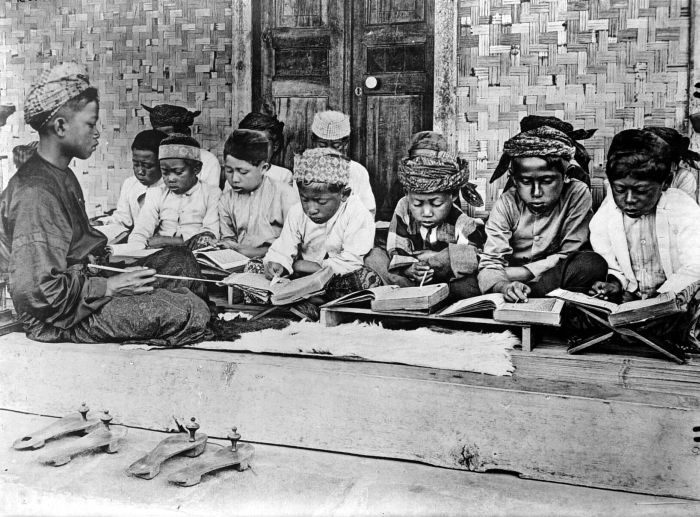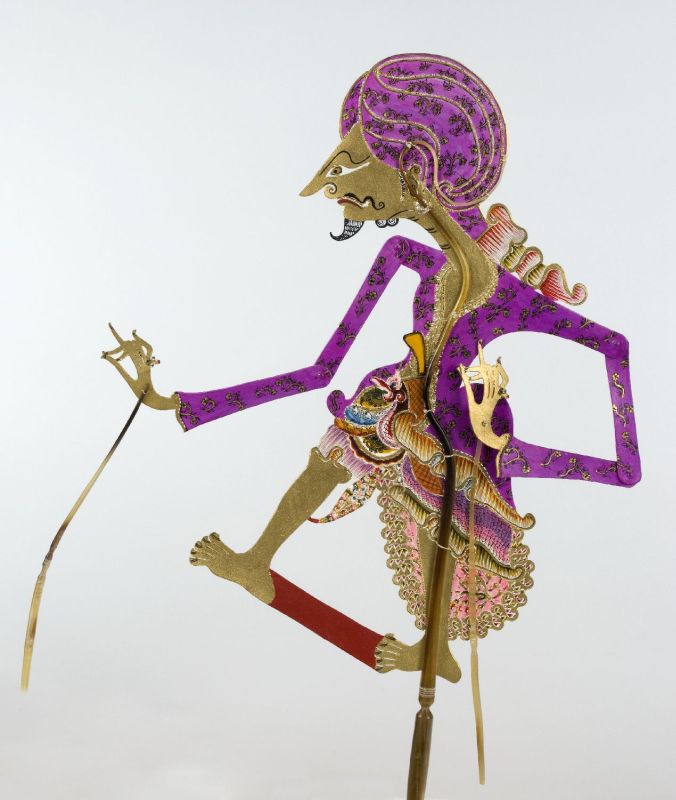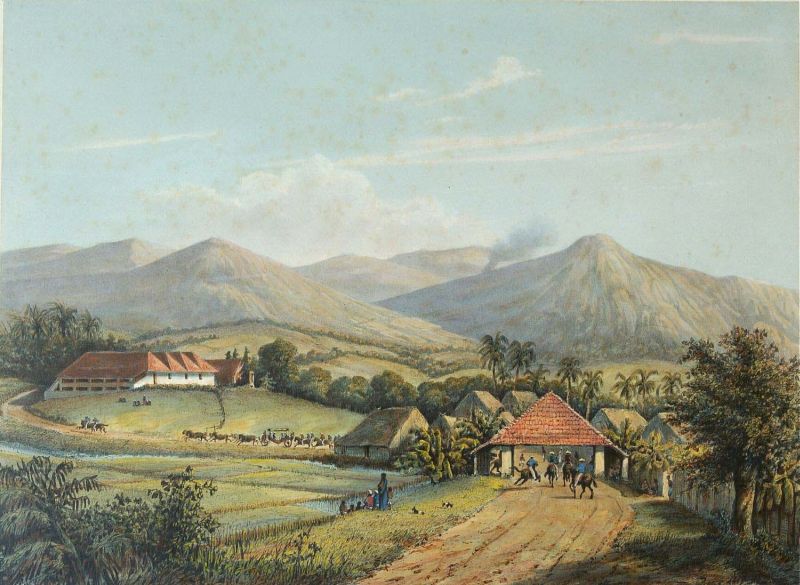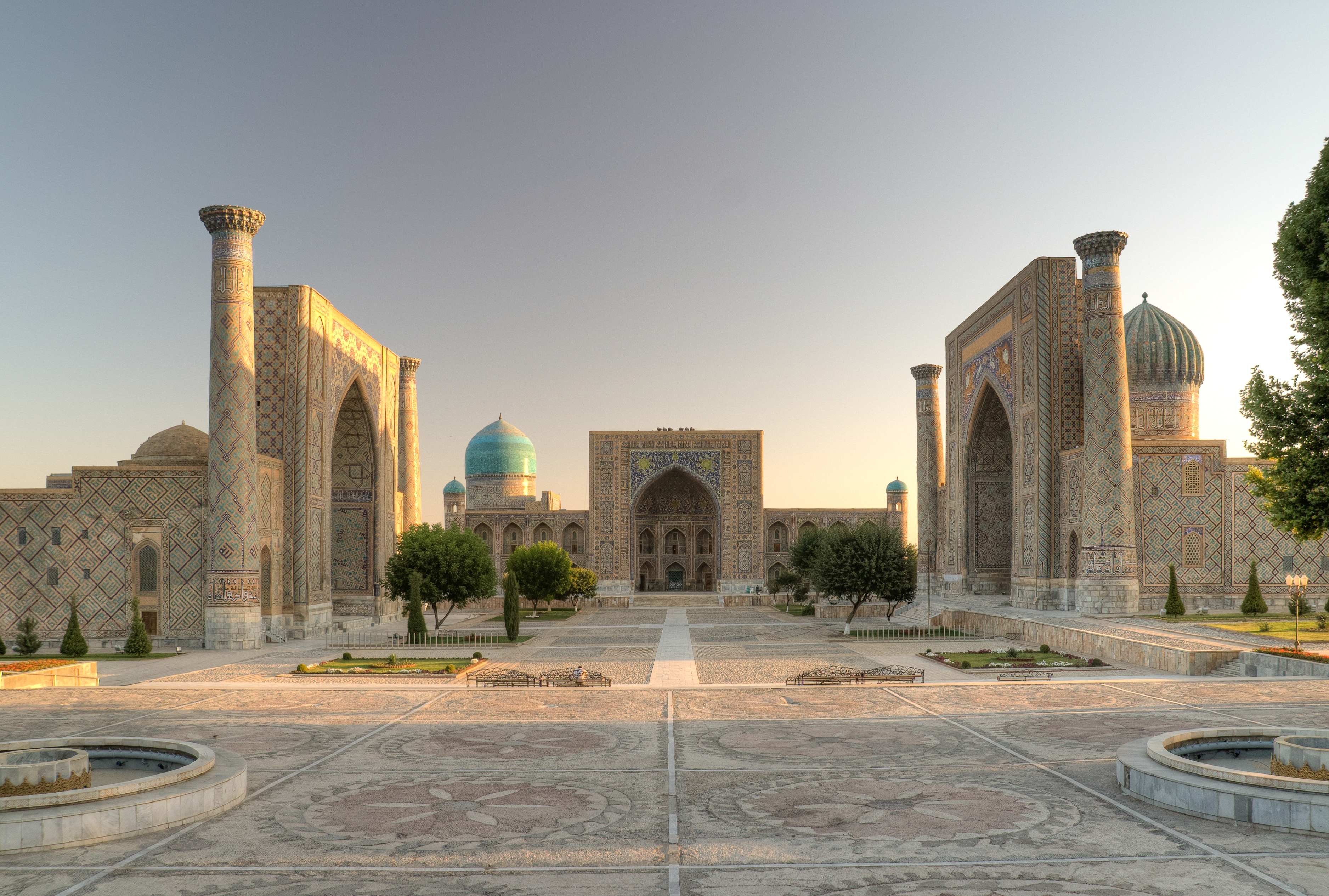|
Pesantren
''Pesantren'' is a traditional Islamic boarding school in Indonesia. It is taught either in private houses, a ''wiktionary:pondok, pondok'' or a mosque, the teaching includes classical Islamic texts and ''santri'' thought, taught by Kyai, ''kyais''. According to one popular tradition, the ''pesantren'' education system originated from traditional Javanese ''pondokan'', dormitories, ashram, ashrams for Hindu, Hindus or viharas for Buddhists to learn religious philosophies, martial arts, and meditation. Institutions much like them are found across the Islamic world and are called ''pondok'' in Malaysia, Southern Thailand and ''madrasa, madrasas'' in India and Pakistan and much of the Arabic-speaking world. The ''pesantren'' aims to deepen knowledge of the Quran, particularly through the study of Arabic, traditions of exegesis, the Hadith, Sayings of the Prophet, law and logic. The term ''pesantren'' derives from the root word ''santri'' or student -- ''pe-santri-an'' or the place o ... [...More Info...] [...Related Items...] OR: [Wikipedia] [Google] [Baidu] |
Kota Santri
''Kota santri'' ("city of santri" or "city of pious people") is an epithet used in Indonesia, predominantly in Java, given to a region historically important in the context of Education in Islam, Islamic education. The term ''santri'' generally means a Muslim student who studies at ''pesantren'', an Islamic boarding school indigenous to the Indonesian archipelago. In the modern days, the term ''kota santri'' was popularized by a folk song sung by a qasidah modern musical group Nasida Ria from Semarang.Jalan-Jalan ke 6 Kota Santri di Indonesia yang Damai dan Religius ''Pegi pegi''. Retrieved April 2, 2021. Concept The concept of ''santri'' was historically used to designate a Javanese societal class ( ...[...More Info...] [...Related Items...] OR: [Wikipedia] [Google] [Baidu] |
Kyai
A kyai ( ) is an expert in Islam. This denomination is usually used among the ethnic Javanese people. Origins The word kyai is originally from Javanese. Sometimes, it is spelled kiai. Traditionally, students of Islam in Indonesia would study in a boarding school known as a pesantren. As a form of respect, the leader of the school was referred to as kyai. The traditional word for a teacher in Islam is ustad, which is a Arabic word. Because Islam is one of the religions with the most followers, many ustads in Indonesia teach the religion. Education Kiai were educated in various pesantren: A student in a pesantren is called a santri. After the founding kyai of a pesantren dies, his son or another santri may take over the supervision of the school and would then be called kyai. It is possible for a large boarding school to have several kyai living and teaching there. However, most pesantren have a few hundred students, with only one person who is called kyai. The other teachers ... [...More Info...] [...Related Items...] OR: [Wikipedia] [Google] [Baidu] |
Abdurrahman Wahid
Abdurrahman Wahid ( ; né ad-Dakhil, 7 September 1940 – 30 December 2009), more colloquially known as Gus Dur (), was an Indonesian politician and Islam in Indonesia, Islamic Kyai, religious leader who served as the fourth president of Indonesia, from his 1999 Indonesian presidential election, election in 1999 until he was Impeachment of Abdurrahman Wahid, removed from office in 2001. A long time leader within the Nahdlatul Ulama organization, he was the founder of the National Awakening Party (PKB). He was the son of Ministry of Religious Affairs (Indonesia), Minister of Religious Affairs Wahid Hasyim, and the grandson of Nahdatul Ulama founder Hasyim Asy'ari. Due to a visual impairment caused by glaucoma, he was blind in the left eye and partially blind in his right eye. He was the first (and to date only) president of Indonesia to have had physical disabilities. Wahid was instrumental in lifting the ban on Chinese New Year (). Until 1998, the spiritual practice to celebrate ... [...More Info...] [...Related Items...] OR: [Wikipedia] [Google] [Baidu] |
Kitab Kuning
In Indonesian Islamic education, Kitab kuning () refers to the traditional set of the Islamic texts used by the educational curriculum of the Islamic seminary in Indonesia, especially within the madrasahs and pesantrens. Coverage of kitab kuning extends from the principles of Islamic jurisprudence (''usul al-fiqh''), Islamic creeds (''aqidah''), Islamic ethics ('' akhlaq''), science of Islamic mysticism (''tasawwuf''), sciences of Arabic language, science of Qur'anic recitations ('' tajwid''), hadith studies, tafsir, Qur'anic studies to social sciences. It is also known as ''kitab gundul'' (lit: bare book) due to the content in the Arabic language does not employ vowel marks (''harakat''), unlike the Qur'an. Therefore, mastering of kitab kuning is considered to require a substantial amount of time. Collections of the Islamic texts employed as kitab kuning may vary, depending on the type of institution, individual schools, kyai, and region, with certain prerequisite materials su ... [...More Info...] [...Related Items...] OR: [Wikipedia] [Google] [Baidu] |
Islam In Indonesia
Islam is the largest religion in Indonesia, with 87.06% of the Indonesian population identifying themselves as Muslims, based on Civil registration, civil registry data in 2023. In terms of denomination, the overwhelming majority are Sunni and Non-denominational Muslim, Non-denominational Muslims; the Pew Research Center estimates them as comprising ~99% of the country's Muslim population in 2011, with Shia Islam in Indonesia, the remaining 1% being Shia, who are concentrated around Jakarta, and about 400,000 Ahmadi Islam, Ahmadi as well. In terms of maddhab, schools of jurisprudence, based on demographic statistics, 99% of Indonesian Muslims mainly follow the Shafi'i school, although when asked, 56% do not adhere to any specific school. Trends of thought within Islam in Indonesia can be broadly categorized into two orientations: "Modernism (Islam in Indonesia), modernism", which closely adheres to orthodox theology while embracing modern learning, and "Traditionalism (Isla ... [...More Info...] [...Related Items...] OR: [Wikipedia] [Google] [Baidu] |
Santri
In Indonesia, ''santri'' is a term for someone who follows Islamic religious education in ''pesantren''. Santri usually stay in the place until their education is complete. After completing their study period, some of them will serve the ''pesantren'' by becoming administrators. According to C.C. Berg, the term "santri" comes from Sanskrit ''shastri'' which means "one who learns Hindu scriptures"; it has the same root as the word ''shastra'' (literature). Starting in 2015, October 22 is designated as the National Santri Day (''Hari Santri Nasional'') in Indonesia. The date refers to "jihad resolution" issued by Hasyim Asy'ari of Nahdlatul Ulama to ulama and santri before the national revolution. Geertz research In a study by American sociologist Clifford Geertz, the santri are people, particularly in Java, who practice a more orthodox version of Islam, in contrast to the more syncretic '' abangan''. Geertz identified three main cultural streams (''aliran'' in Indonesian) ... [...More Info...] [...Related Items...] OR: [Wikipedia] [Google] [Baidu] |
Java
Java is one of the Greater Sunda Islands in Indonesia. It is bordered by the Indian Ocean to the south and the Java Sea (a part of Pacific Ocean) to the north. With a population of 156.9 million people (including Madura) in mid 2024, projected to rise to 158 million at mid 2025, Java is the world's List of islands by population, most populous island, home to approximately 55.7% of the Demographics of Indonesia, Indonesian population (only approximately 44.3% of Indonesian population live outside Java). Indonesia's capital city, Jakarta, is on Java's northwestern coast. Many of the best known events in Indonesian history took place on Java. It was the centre of powerful Hindu-Buddhist empires, the Islamic sultanates, and the core of the colonial Dutch East Indies. Java was also the center of the History of Indonesia, Indonesian struggle for independence during the 1930s and 1940s. Java dominates Indonesia politically, economically and culturally. Four of Indonesia's eig ... [...More Info...] [...Related Items...] OR: [Wikipedia] [Google] [Baidu] |
Surau
A surau is an Islamic assembly building in some regions of Sumatra and the Malay Peninsula, used for worship and religious instruction. Generally smaller physical structures, their ritual functions are similar to those of a mosque, they admit men and women, and they are used more for religious instruction and festive prayers. Surau mostly depend on grassroots support and funding and can be compared to the Arab zawiya. In the Minangkabau society of West Sumatra, Indonesia, they are built on high posts and maintain pre-Islamic traditions of a men's house. In contemporary usage, "surau" is often used to refer to either a small mosque or a designated room in a public building (such as a shopping mall, a university, or a rest stop along a highway) for men or women to perform salah. Indonesia Surau among the Minangkabau of West Sumatra date to pre-Islamic times, as men's communal accommodation. The first such surau is believed to have been built in the late 17th century, in ... [...More Info...] [...Related Items...] OR: [Wikipedia] [Google] [Baidu] |
Nahdlatul Ulama
Nahdlatul Ulama (, , NU) is an Islamic organization in Indonesia. Its membership numbered over 40 million in 2023, making it the largest Islamic organization in the world. NU is also a charitable body funding schools and hospitals as well as organizing communities to help alleviate poverty. The NU was founded in 1926 by the ''ulema'' and merchants to defend both traditionalist Islamic practices (in accordance with Shafi'i school) and its members' economic interests. NU's religious views are considered "traditionalist" in that it accepts local cultural traditions that do not conflict with Islamic law (in contrast to Islamic fundamentalist groups). By contrast, the second largest Islamic organization in Indonesia, the Muhammadiyah, is considered "reformist" as it takes a more literal interpretation of the Qur'an and Sunnah. Many leaders of Nahdlatul Ulama are ardent advocates of Islam Nusantara, a distinctive variety of Islam that has undergone interaction, contextualization, ... [...More Info...] [...Related Items...] OR: [Wikipedia] [Google] [Baidu] |
List Of Islamic Seminaries
This is a list of Islamic seminaries throughout history, including the operational, historical, defunct or converted ones. This list includes mainly madrasa in the Western context, which refers to the specific type of religious school or college for the study of the Islamic religion and Islamic educations, though this may not be the only subject studied. It also includes sectarian or regional variants which have distinct characteristics and traditions, though serves the identical purposes as seminary, namely Hawza of Shi'a, Shi'a Islam, Nezamiyeh in the medieval Persia, Darul Uloom which has roots in South Asia, Qawmi madrasa, Qawmi in Bangladesh, pesantren in Indonesia, and pondok in Malaysia and Southern Thailand. This list does not include institutions which are not religious seminaries, but have an Islamic identity or charter, or devoted to sciences and arts usually associated with Islamic culture and history, namely Islamic University. List of Islamic seminaries The listin ... [...More Info...] [...Related Items...] OR: [Wikipedia] [Google] [Baidu] |
Hadith
Hadith is the Arabic word for a 'report' or an 'account f an event and refers to the Islamic oral tradition of anecdotes containing the purported words, actions, and the silent approvals of the Islamic prophet Muhammad or his immediate circle ( companions in Sunni Islam, Ahl al-Bayt in Shiite Islam). Each hadith is associated with a chain of narrators ()—a lineage of people who reportedly heard and repeated the hadith from which the source of the hadith can be traced. The authentication of hadith became a significant discipline, focusing on the ''isnad'' (chain of narrators) and '' matn'' (main text of the report). This process aimed to address contradictions and questionable statements within certain narrations. Beginning one or two centuries after Muhammad's death, Islamic scholars, known as muhaddiths, compiled hadith into distinct collections that survive in the historical works of writers from the second and third centuries of the Muslim era ( 700−1000 CE). For ... [...More Info...] [...Related Items...] OR: [Wikipedia] [Google] [Baidu] |










